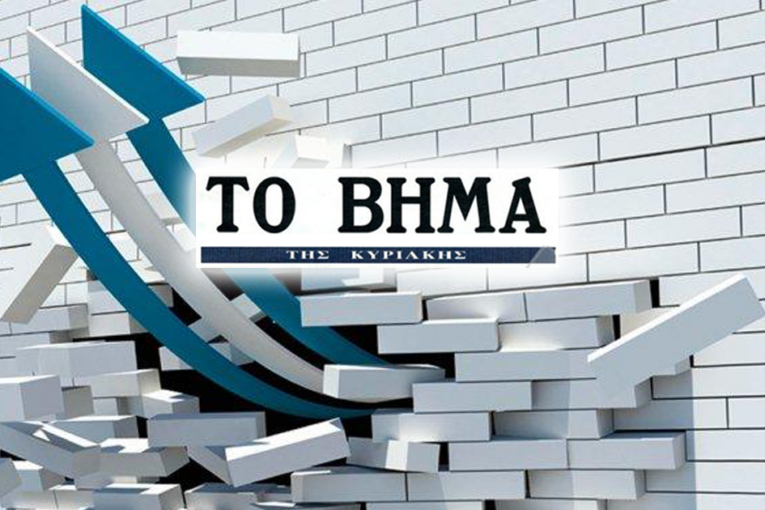
Unfortunately, almost ten years after the outbreak of the crisis, our society still remains in a state of collective hallucinations. The fact that, in order to help save the country from its complete destruction, our partners have requested to estimate the number of civil servants who are paid by the state or to limit the pharmaceutical expense that was, per capita, among the highest in the world mainly enriching foreign pharmaceutical companies, is considered by many as abolition of national sovereignty. Sensible citizens, of course, understand that these requirements did not
constitute abolition of national sovereignty. National sovereignty is threatened in other cases. When, for example, a paralyzed society is unable to defend its territorial integrity against actual external threats. The public debate, however, clearly shows that in the present historic moment, not having the ability to distinguish something ridiculous from something tragic, we cannot distinguish the real threat from the fantastic one either.
In the next period, Greece will be faced with two dangerous situations: a direct threat to its national identity, as well as a possible economic and social collapse. These two dangers are not only no interdependent but, on the contrary, they are directly related, in a way that is not cumulative but multiplicative: a possible flare-up of one problem will lead to the immediate aggravation of the other, something that can potentially lead to a complete disaster. Greece engaging in a struggle to defend its national integrity would have a profound effect on its national economy. Conversely, any new bankruptcy of the country and the socio-economic collapse that would follow would act as an open challenge for its dismemberment. For this reason, it is a necessity for national survival that these two dangerous situations be disconnected and uncoupled.
Unfortunately, as far as the geopolitical threat is concerned, Greece cannot expect substantial help from abroad. It will have to deal with this threat alone by employing all its military, diplomatic, economic and even cultural powers. Fortunately, the same is not true of the financial danger. Prudently and reasonably, Greece can ensure assistance in trying to avoid bankruptcy, exit from the Eurozone and the socioeconomic collapse that would inevitably occur. However, avoiding disaster requires some elements that seem to be lacking in our society. While we are walking on the
edge of the cliff, at the same time we are talking about ridiculous things. Although Greece went bankrupt when its public debt was just over 100% of its GDP, we are seriously debating today, when its debt amounts to 180% of GDP, that the country, armed with a meager «safety reserve» of 18 billion (which it does not have at the moment and we do not know if it will eventually be able to acquire), can just emerge on international capital markets and refinance and serve its debt in the future!
It is a criminally irresponsible absurdity. If the national economy goes unprotected on international capital markets, Greece is at the risk of failing to avoid bankruptcy and its terrible consequences. The only hope of salvation and repelling the mortal economic risk is in the exact opposite direction. The country will have to claim from European partners not only a one-year or two-year preventive credit line – because it is not sure if that will be enough – but much more: the protection of the Greek economy from the turmoil of the international markets for a period of seven to ten years in which Greek debt, without increasing, as long as interest is normally served by the primary surpluses that we ourselves will create, will be refinanced by ESM with its low-yield «Eurobonds».
This debate ought to have been developed during the debt restructuring negotiations and, in order to avoid a backlash from the people of the partner countries, about €40 billion of the €86 billion of the third memorandum that remain unallocated can be used for that purpose. This amount should be the basis of our economy’s shield against market turbulence. Not to be added to the debt – we repeat – but to refinance it at a low interest. Moreover, even if the country wanted to make use of the possibility of recourse to the markets, such a regulation would allow it to be financed
at low interest rates.
Of course, it is well known that some partners are not willing to offer even the precautionary credit line and wish to get rid of the Greek burden altogether. Besides, this is the whole essence of a «clean exit»: a convenience to the partners, not a service to the country. However, our lenders should understand that their attitude shows that they are burying their heads in the sand: they cannot get rid of Greece because they risk losing what they have lent it. The only logical and mutually beneficial solution is that Greece reassures them by proposing itself a national program of radical reforms (like those that it has persistently refused to implement for a decade), which at the end of the period will have transformed its parasitic and archaic economy into a modern and competitive one. The partners will have to be pressed by the Greek governments to the end, and they ought to accept the request of Greece. If anything, as we have written in the past, our country in 2010, due to its debt not having been restructured, has, as the lenders publicly acknowledge, actually borne the salvation of European banks and of the whole European economy.
Konstantine Gatsios is the former Rector of Athens University of Economics and
Business and Dimitris A. Ioannou is an economist.


